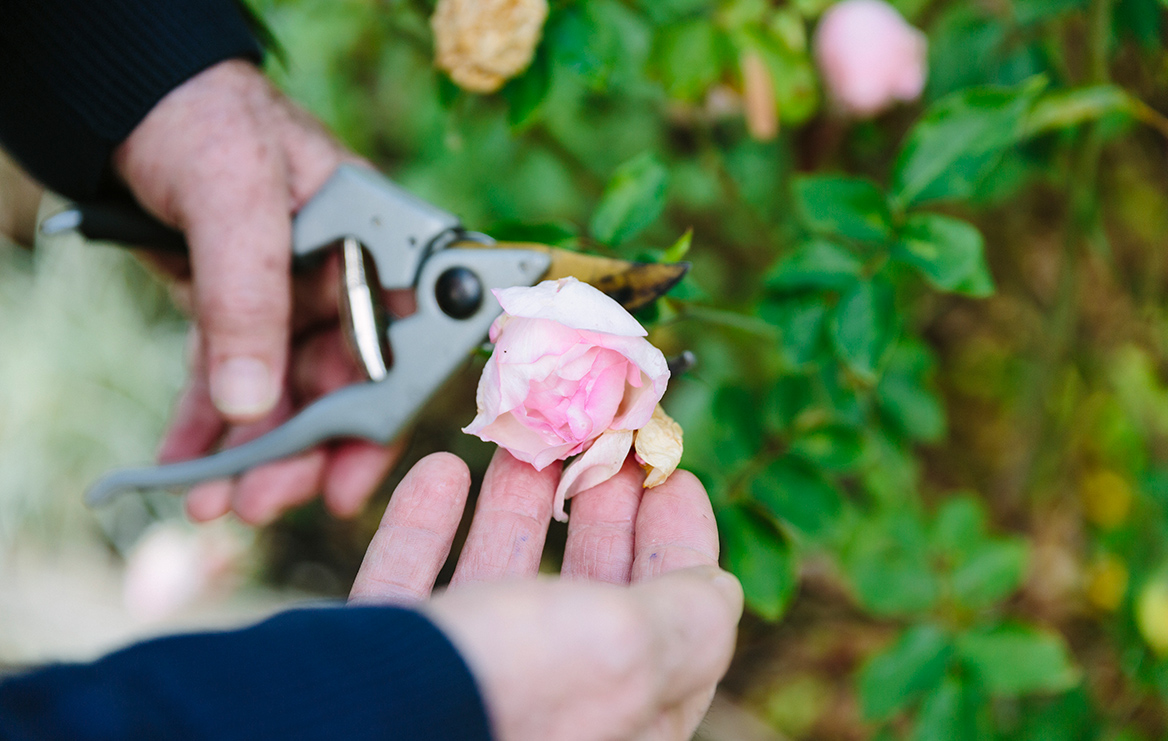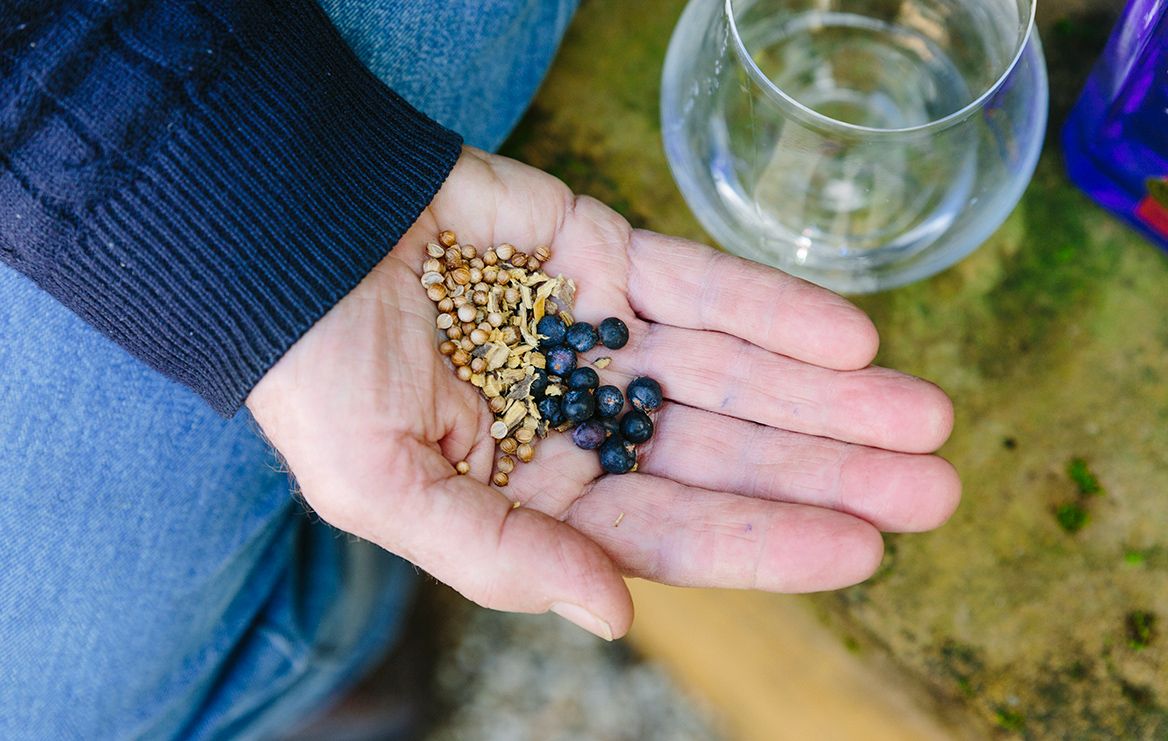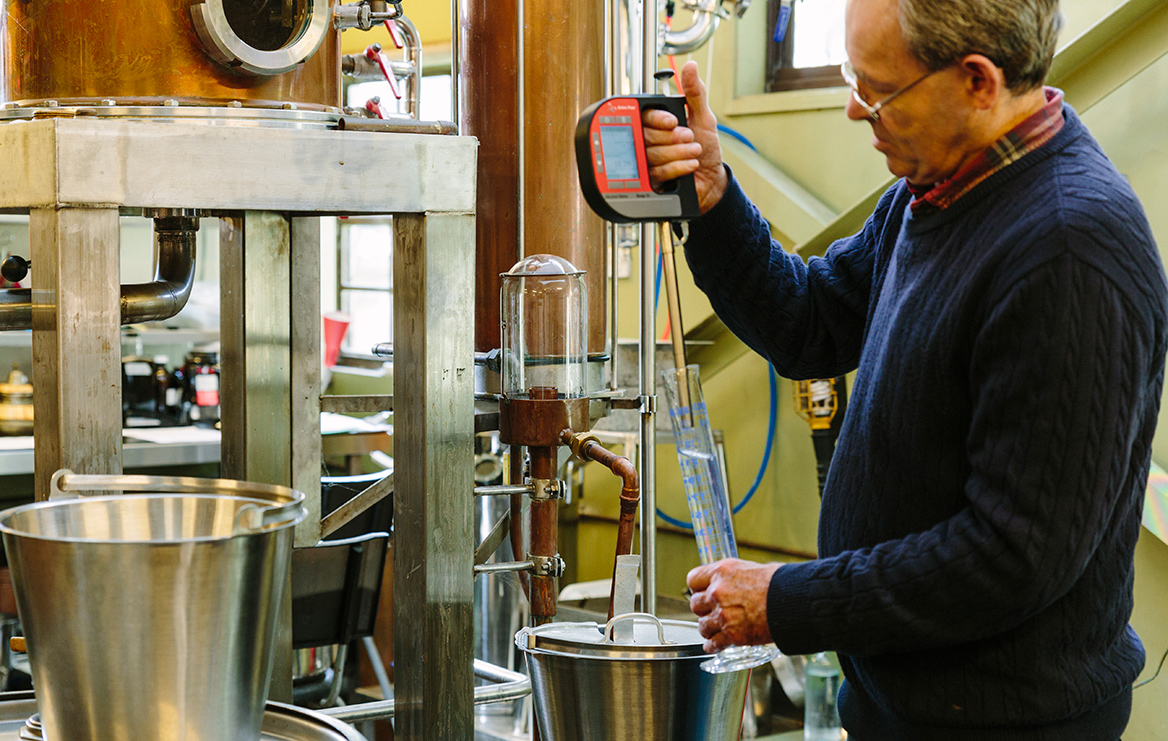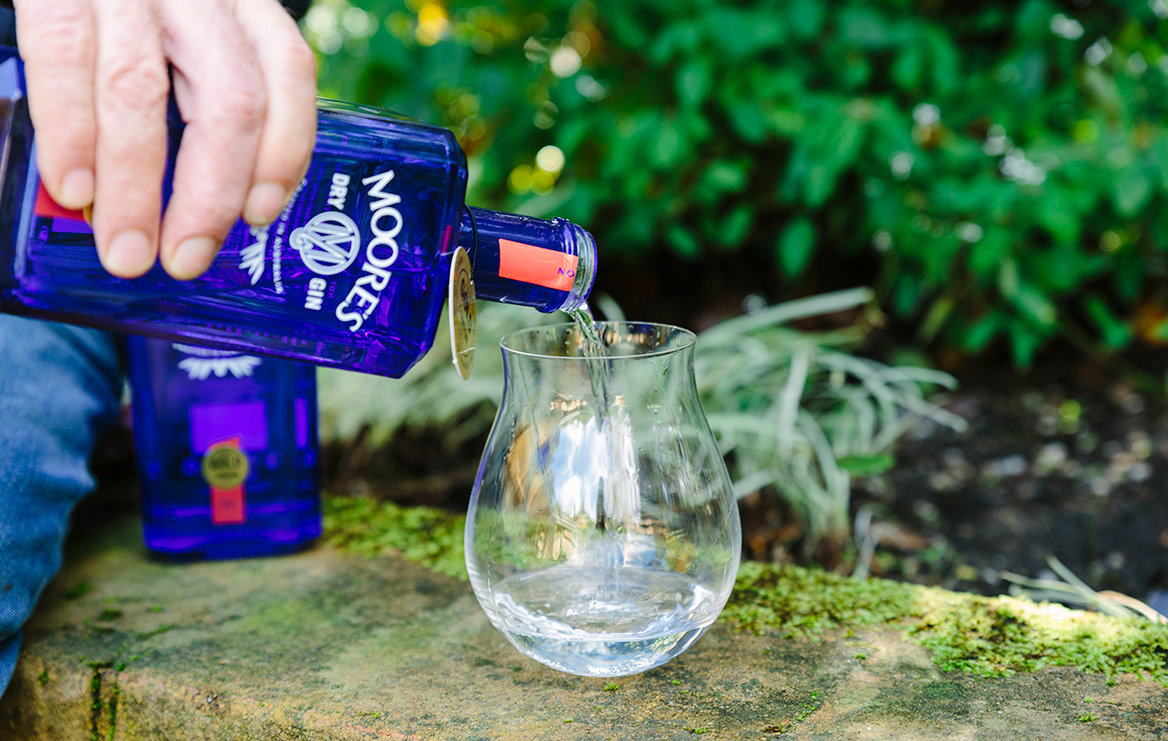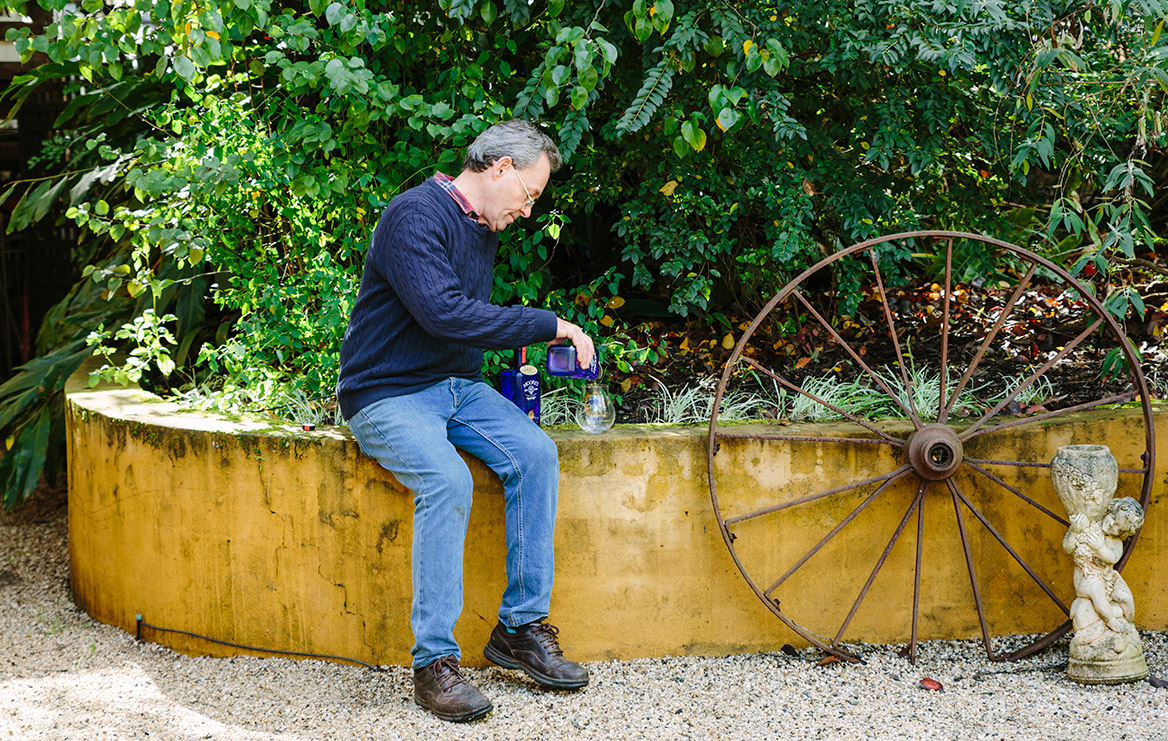
A fascination with the humble herb has led to one of the Central Coast’s most sophisticated small businesses – Distillery Botanica. Horticulturalist Philip Moore makes “garden-grown” gin from the former and much-loved The Fragrant Garden in Erina. When Philip purchased the three-acre block in 2005 it required of a lot of attention.
“It would have been suitable for a remake of the George of the Jungle movie,” he laughs.
The gardens have been there for around 50 years yet there had been no commercial activity on the land for the two years prior to Philip’s ownership, so he had the task of re-establishing the grounds from scratch. A year later, the distillery was built, and 12 months after that, in 2007, the first Distillery Botanica Gin was sold.
At this time, there were only 15 distilleries Australia-wide, says Philip, who adds that it’s great being the only one on the Central Coast.
“Not a lot is known about distilleries, so many visitors are very keen to expand their knowledge,” he says.
In the early days, Philip relied on word of mouth to attract visitors. He’d opened a cellar door, had a sign up on well-trafficked Terrigal Drive and hoped visitors would return with friends. Courting travel media also helped.
Although Philip is a qualified herbalist, he’s never practised as one, yet that’s no indication of his expertise. He is the founder of Australia’s largest wholesale herb nursery, Renaissance Herbs, which he nurtured for more than 20 years and oversaw the growing of nearly one million plants annually. It’s suffice to say he knows a thing or two about gardening.
Philip sees Distillery Botanica as a logical progression of this career in horticulture.
“Rather than simply growing plants as I did with Renaissance Herbs, I now grow them and capture their essential nature by distilling them into superb international award-winning drinks,” he says.
These drinks include Moore’s Dry Gin and Distillery Botanica Gin, among others. As for the accolades, the company has won eight gold medals and seven silvers between the years 2008 and 2018 at the International Wine and Spirit Competition in London and the San Francisco World Spirit Competition, two highly regarded shows. Philip’s success can be attributed to his dedication of perfecting his spirits, as well as the hundreds of trials he’s conducted and the countless hours spent getting his mixes right. He’s also passionate about keeping everything natural, and that means no artificial flavours or colours are used in his creations.
So what makes a good gin? There are a handful of requirements, the first of which is having a base alcohol that is “immaculately clean”, says Philip. The botanicals must also be of the highest quality, and the water used should enhance the taste of the distilled spirit. Two other determining factors come down to skill and experience – the mastery of the distillation process, and an understanding of how to blend the botanicals to create a balance of flavours. For Moore’s Gin, angelica from Philip’s garden is used, while Distillery Botanica Gin has been infused with rose, chamomile, sage and murraya flowers. Philip also grows ginger, galangal, turmeric, mandarins, lemon verbena, kaffir lime, curry leaf trees, lemon myrtle and cinnamon myrtle. When it to comes to getting the most from these various flavours, Philip follows a long process during which he extracts the essence and aromas of flowers and botanicals by laying them down on solidified coconut oil. He lets them rest for a few days until their fragrances have diffused into the oil. This results in a pure perfume.
Although there are no garden tours available at Distillery Botanica, Philip occasionally hosts gin days and visitors are welcome to stroll around the grounds at their leisure. You can also stop by for a cellar-door tasting and purchase drinks to be taken away. If gin isn’t your favoured libation, you can opt for Mr Black Cold Brew Coffee Liqueur. Made entirely from coffee beans, with zero artificial flavours, this liqueur packs a punch. The beans are imported from Columbia, Kenya and Papua New Guinea, and have tones of caramel, toffee and chocolate, with a “lively acidity”. And, as if Philip wasn’t busy enough, he is also proud that the entire process of coffee roasting, grinding, infusing and bottling is done by hand at the distillery, with the liqueur sold throughout Australia, the United Kingdom, and America. Along with those three beverages, Philip also produces lemon myrtle liqueur, made with the leaves from Distillery Botanica’s own lemon myrtle trees, raspberry liqueur and vodka.
For more information about Distillery Botanica.



